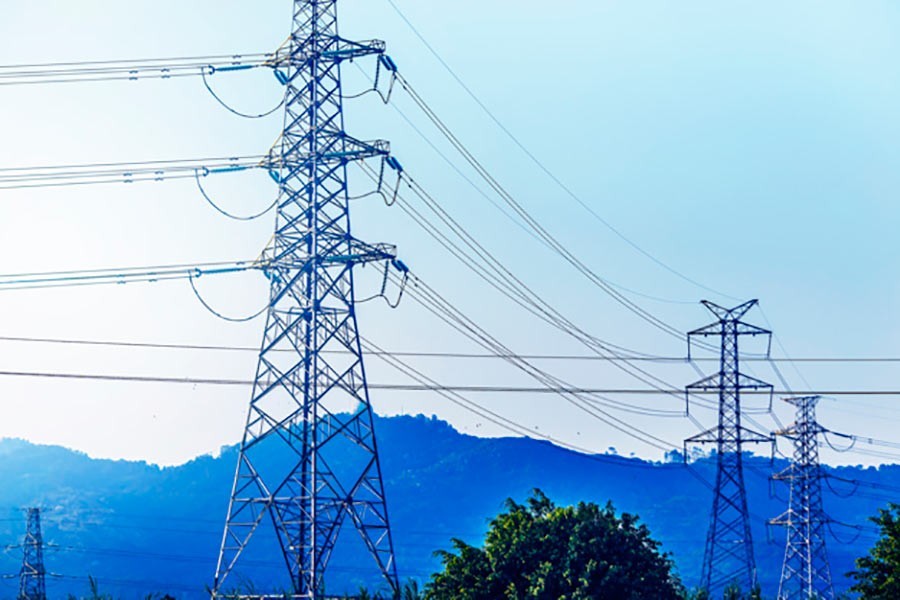Saying that the government is not doing enough to bail the nation out of the ongoing economic deadlock may be viewed by many as a travesty of truth. But it's not a distortion of facts. Thanks to the administration's compulsion to get along with the market and assorted sectors' operatives who call the shots in their respective fields, the government has to make compromises at times. It's part of the country's national legacy which has been passed down to the 20th century government machinery. No matter how strong a government is, its fiats do not always work. Accordingly, many of the Third World's governments find Vladimir Lenin's words "It's necessary sometimes to take one step backward to take two steps forward" relevant still today. Maybe, Bangladesh falls in this category. In spite of the government's unwavering stance to steer clear of the global adversities, it admits being caught in a quagmire. Amid the global economic meltdown taking the citizens of the poorer countries off guard, which began a few months ago--- sparked by the outbreak of the Russo-Ukrainian conflicts, even popular governments couldn't prevent their citizens from feeling being hit by the worst economic jitters since the 1929-`39 Great Depression.
Due to the developed countries' economic track record showing a steady growth wielded by strong governments and governance, they are able to keep their countries unaffected despite the present turmoil. Coming to Bangladesh, the domestic detractors do not miss a small chance of criticising the persons at the helm of government. With their normal life in disarray thanks to the skyrocketing cost of living, and remaining content with the bare minimum, it's the fear of a darkness engulfing them from all sides, which makes them turn desperate. The educated persons understand the extent of the global turmoil in the multi-faceted economic sector. But continued disillusionment caused by market inaccessibility, strict rationing on getting the basic utility services makes others boil in simmering impatience. Compared to the similar crises in the past, the present one can be defined as a punishing one. The country has passed through the depressing times of the post-Liberation War, comprising crisis of food and other items, fifty-one years ago. Disastrous floods added to the national sufferings. The communication infrastructure, industries, the sea- and river ports were in ruins in the early 1970s. It seems incredible for many to recall how this same nation displayed the strength to weather those existential crises. History may point at the then nationalist forces which were active in keeping the all-sweeping patriotism alive in people, despite sparks of discontent. Moreover, the world political situation back then was completely different from the one in place today.
The residual bipolar world in the early 1970s was dominated by the US, the champion of market economy and a democratic system respecting all shades of opinion. The Soviet Union, today's Russia, promoting a centralised economy and a one-party system recognising, or permitting, only the official state version of opinions, led the other segment of the bipolar world. After the collapse of the Soviet Union in the early 90s, the world saw the unhindered march of the market economy and free speech. The watershed event of the whole world rallying behind the multi-party democratic system had little impact on the Bangladesh statecraft. That the present unsavoury realities amid many bitter economic impediments would not have bothered Bangladesh much had those not impacted on the lives of its low-income people; majority of them remaining content with two square meals a day. The latest dislocation in the humble Bangladesh economy and the jitters it is made to undergo has caught the country and its people unawares. To their misfortune, the gusts of the global economic uncertainties shook Bangladesh at a time when it was all set to graduate to a lower middle-income country from its LDC status.
Given the series of remedial measures taken recently by the government, evidently to alleviate the sufferings of the low-income and also the lower middle-class people, the government appears far from surrendering itself to destiny. They know well the path to a tolerable state of recovery is filled with many hidden thorns; with business and trade syndicates peeping out of their holes. But the general masses seem to have reached the end of their tethers. Apart from being burdened by an overheated market, the clients of essential commodities and services continue to remain dumbfounded.
Ever since its emergence as an independent nation in 1971, Bangladesh hasn't given in to any testing times. Its 51-year-long path hasn't been strewn with rose petals. Apart from the brief interludes of peace and tranquility, crises in different sectors have continued to beset it. The ongoing economic volatilities have stood out with their complex nature, with the nation being sucked into an unfathomable whirlpool. All this began with a senseless diesel and other essential commodities' price hike caused by economic sanctions on Russia over its war with the NATO-backed Ukraine. The poorer countries like Bangladesh are now feeling befuddled while coping with the continuing price hike of fuel-oil, food grains rice and wheat, edible oil and scores of domestic essentials. Bangladesh has been hit hard by the domino effect of the global economic uncertainties that has invited disastrous times for its agriculture, power and industrial production. The government, evidently, is trying its best to find a way out of the imbroglio in order to stop it from spreading its tentacles further. But confused handling of the situation, anachronistic business strategies and errors in fixing urgencies may prolong the situation prevailing at the moment. Mere sticking to resilience may not help the nation in these crises. The spirit ought to be supplemented by action, taken domestically.


